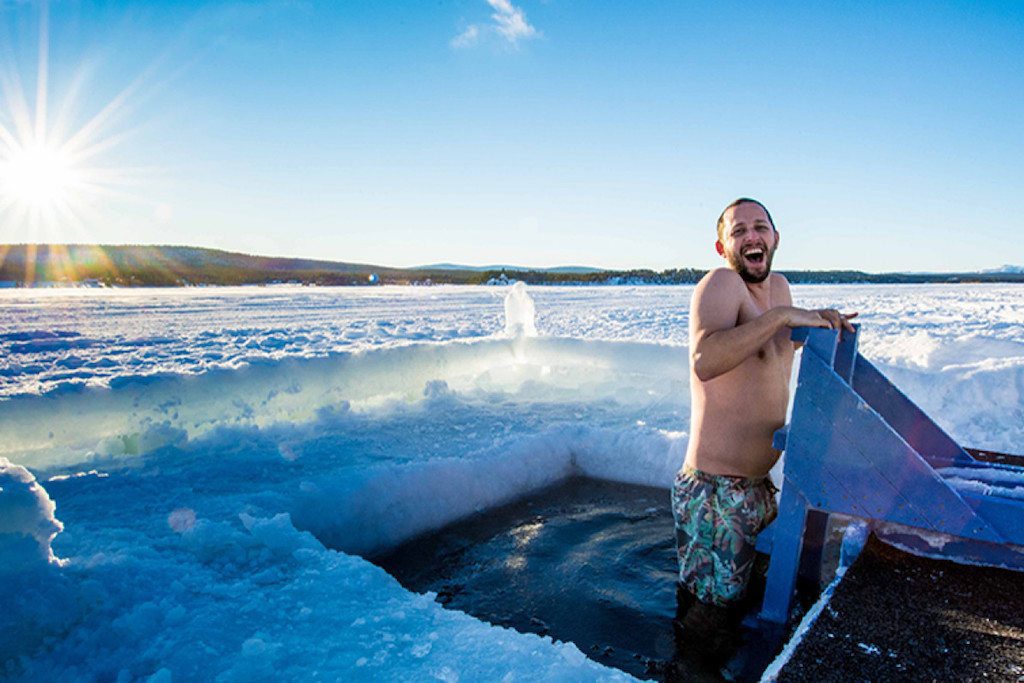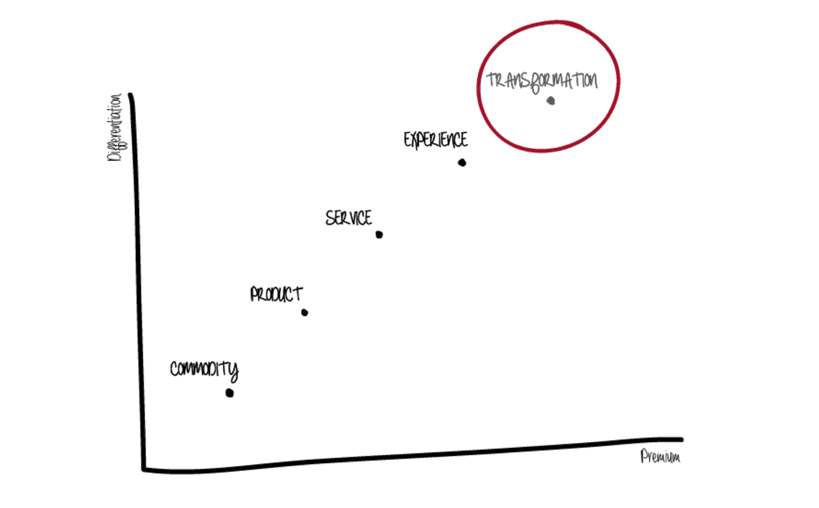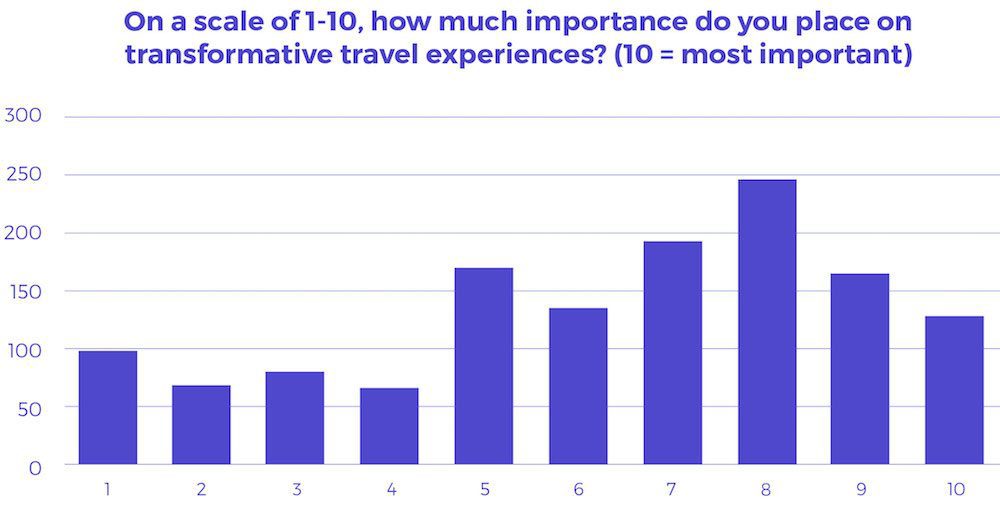Skift Take
Skift's latest research shows a clear shift in demand for more transformative travel experiences among upscale travelers, but we expect many brands will jump on this trend without offering anything significantly new in terms of product or programming.
Joe Pine and James Gilmore co-authored “Welcome to the Experience Economy” in Harvard Business Review in 1998, which they followed up in 1999 with the bestselling book, “The Experience Economy.”
Their central theme emphasized that businesses have to provide a more visceral, more memorable experience to engage the next generation consumer effectively, whereby the memory-making process becomes an embedded part of the product or service delivery. That sparked the birth of modern customer experience management, and it ushered in a tidal wave of mainstream marketing that repositioned everything as “experiences.”
Today, Pine suggests that the next logical evolution of the experience economy is the transformation economy.
[signupform id=”91580e75-6c0e-4e11-8df7-7f1dd2376b1f” text=”Interested in more stories like this? Subscribe to Skift’s New Luxury Newsletter to stay up-to-date on the business of modern luxury travel.” class=”purple”]
“We’re now going beyond the experience economy to what people are calling the ‘transformation economy,’ where an experience changes us in some way during a particular moment in time,” he says. “When you can easily design the experience to be so appropriate for a particular person, and exactly the experience that they need at a particular moment in time, then it becomes easier to deliver a life-transforming experience.”
Pine’s chart below shows the linear progression from experiential to transformative products and services driving marketing strategy today.
“That’s the transformation in the travel industry right now,” says Pine. “We’re now using experiences as the raw material to guide people to change and evolve.”
It’s a shift among next generation travel brands from focusing on the external journey, he explains, to identifying the traveler’s internal journey, which can be as lofty or as simple as the individual customer deems transformative.
That aspiration can range anywhere from desiring to be a more creative person to being a better mom, so travel brands have an opportunity to support that evolution in innumerable ways.
Critics, however, are eager to point out that personal transformation has always been inherent in travel. They argue that the transformative travel trend is more marketing-speak than anything else, forcing the theme upon a consumer market always hungry for the next new thing.
The obvious danger here is that there will be no shortage of brands adopting the transformative travel narrative, without integrating any real opportunities for personal enrichment into their products and programming beyond the norm — just like hotel companies have been accused of greenwashing their sustainability messaging.
“That’s why I haven’t made a big deal about transformative travel yet,” says Pine. “People ask, ‘When are you going to write a book on the transformation economy?’ Well, the world isn’t ready for it yet. It is a very intimidating word, but it is in fact what people are just naturally increasingly looking for, because people are always looking for things that affect them in some new way.”
“The transformation economy isn’t pitted against the experience economy, it is the natural evolution of it, borne out of the increasing desire of the consumer to satisfy the highest tier of Maslow’s Hierarchy of Needs: self-actualization,” says Claudia Roth, founder and managing director of the London-based Soul Luxury consultancy firm.
“In the experience economy, businesses and brands curate memorable encounters, thus the experience becomes the product,” she continues. “In the transformation economy, consumers are seeking more than mere experience. They crave something meaningful to which they can connect on the most personal level, and in doing so, undergo an actual sense of transformation.”
Skift Research Data
According to Skift research in February 2017, polling 1,350 upscale travelers: 54.3 percent of respondents ranked the importance of transformative travel experiences as 7 out of 10 or higher.
Another question in Skift’s research sought to discover and define any significant shift in demand for more transformative travel experiences in 2017.
According to the data below, 52.8 percent of respondents reported that they now value transformative travel experiences somewhat or significantly more than they did 3-5 years ago.
“Luxury travel will become a much more personal experience, where travel experiences within the luxury sector will be measured by personal value,” says John Hitchcox, COO of Yoo Hotels & Resorts. “Exotic destinations will still be of interest but the deciding factor will be the potential result in personal change and transformation, with so much choice on offer within the luxury sector.”
Hitchcox also suggests that hotels and destinations that can support a guest’s transformative journey have a greater opportunity to build long-term loyalty.
“Transformative travel results in a much deeper, personal attachment to the destination, or hotel or resort,” he says. “Emotional attachments lead to much higher consumer engagement, even after guests have returned home.”
Tina Edmundson, global brand leader at Marriott, adds: “With all of the distractions and unpredictability of travel, and today’s overscheduled and always-on culture, travelers are evolving to incorporate smaller transformative moments into their travel. We are seeing people around the world regain control of their time and routine, and realign their priorities to put their well-being first.”
This is an excerpt from a Skift Trends Report, produced in partnership with International Luxury Travel Market (ILTM). The report explores the many disruptions in luxury travel where tired narratives about what upscale travelers want no longer suffice. The very definition of “luxury” is nebulous today, meaning different things to a widening arc of customers with myriad psychographic profiles, age brackets, and personal lifestyles, emerging from a continually expanding range of source markets.
The Daily Newsletter
Our daily coverage of the global travel industry. Written by editors and analysts from across Skift’s brands.
Have a confidential tip for Skift? Get in touch
Tags: luxury
Photo credit: Ice dipping at ICEHOTEL Sweden. Memorable experiences are thought to engage the next generation consumer effectively. ICEHOTEL Sweden



